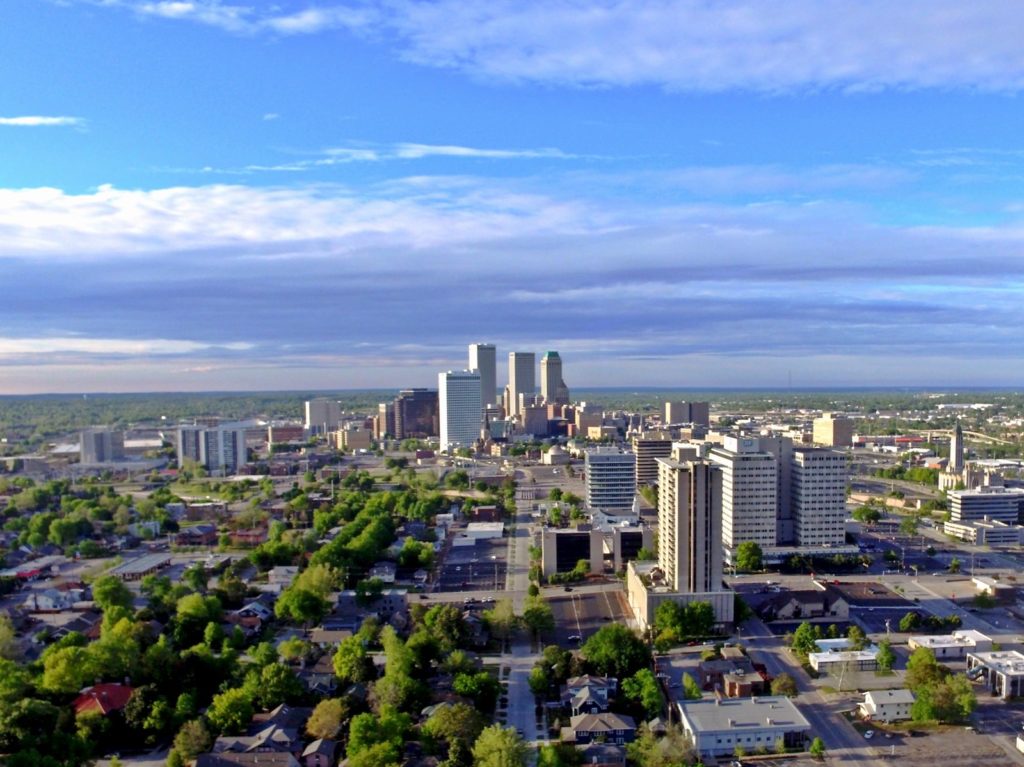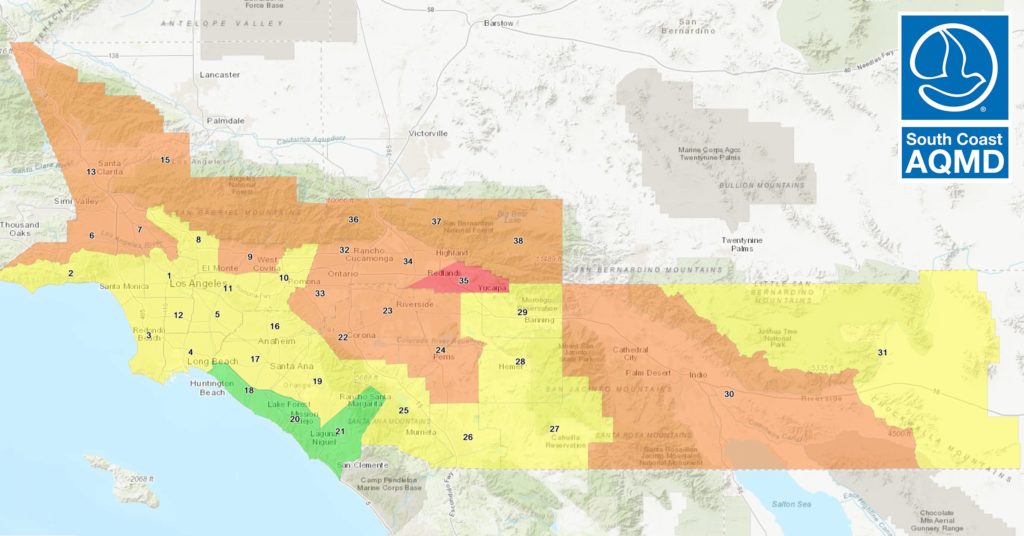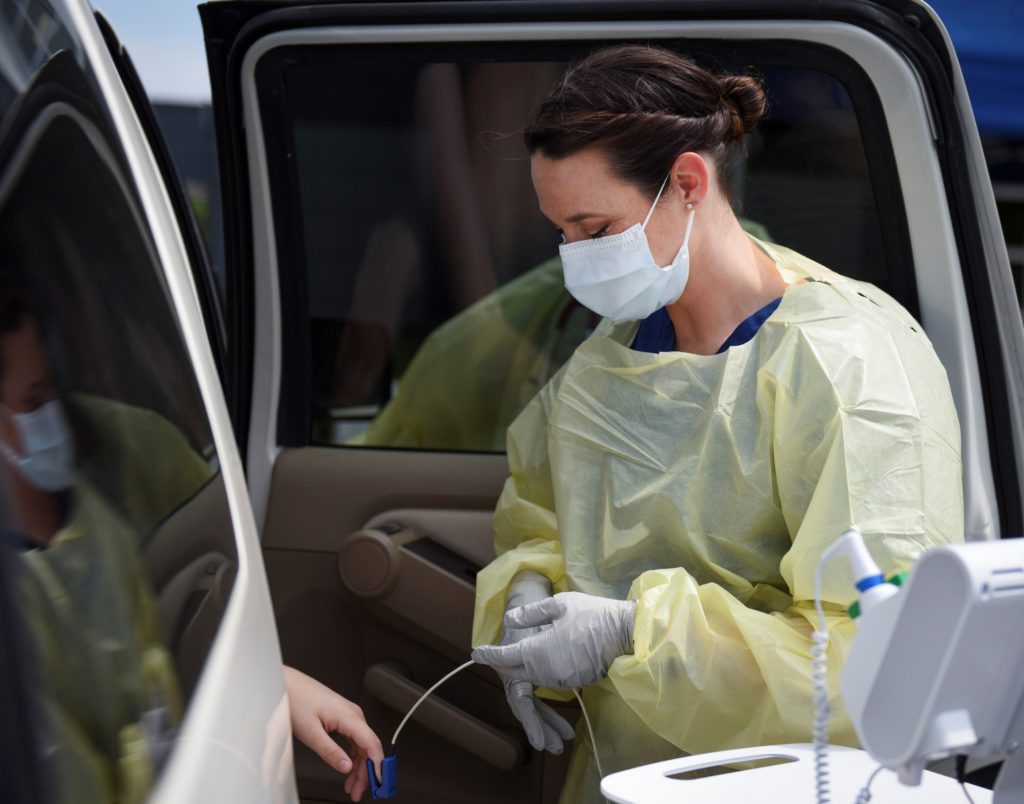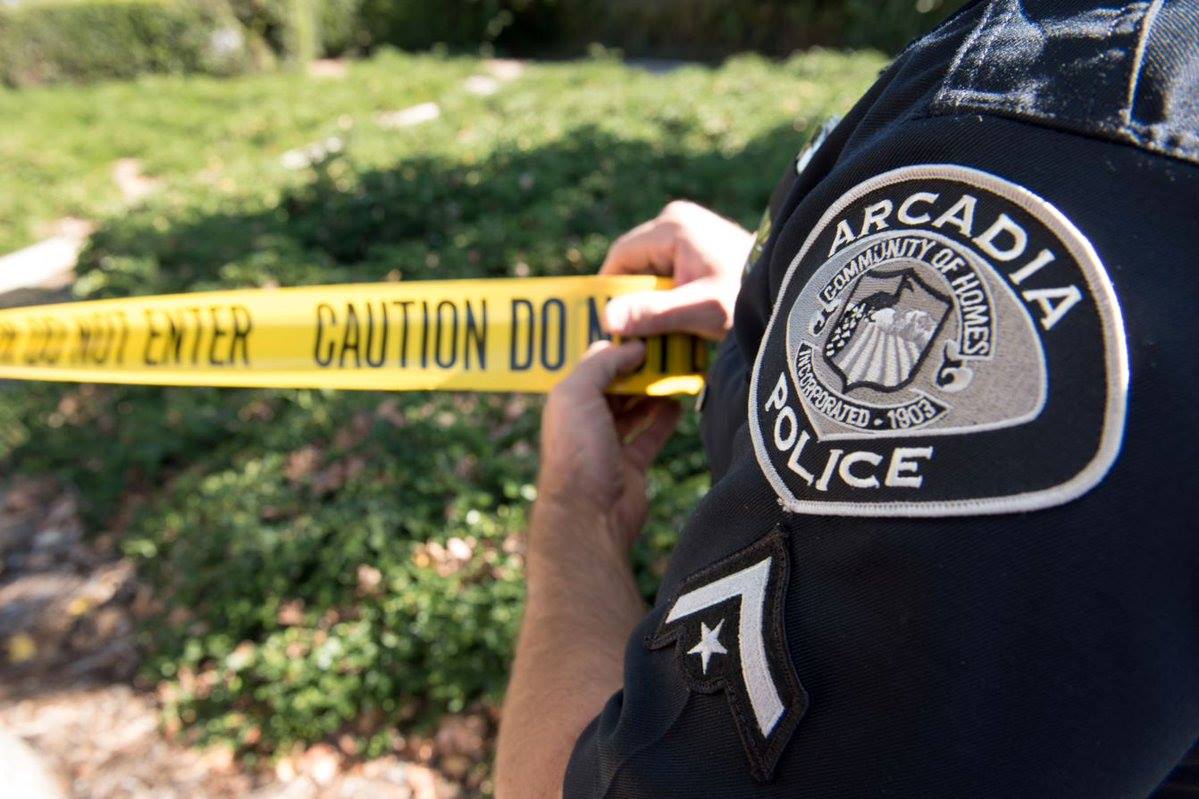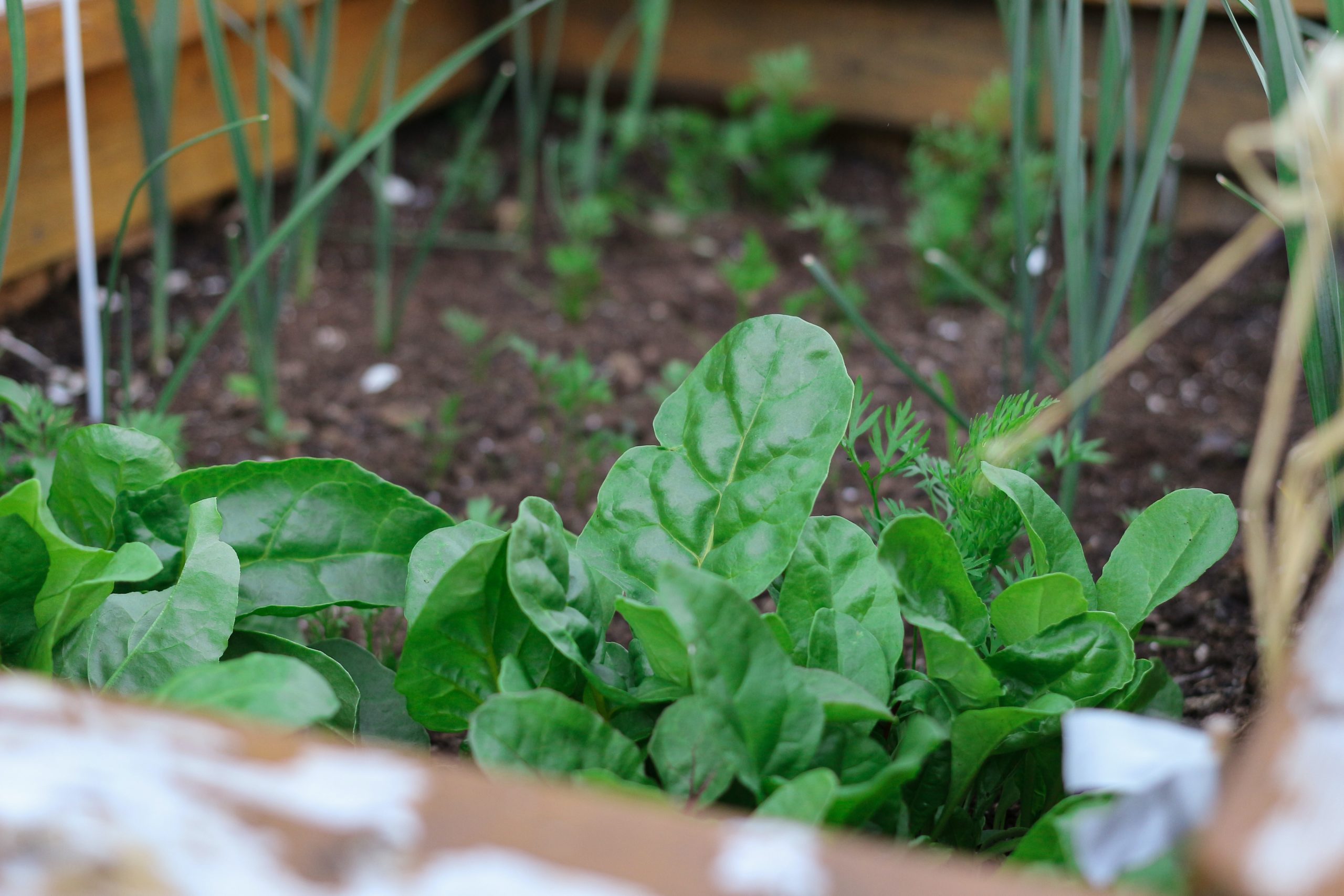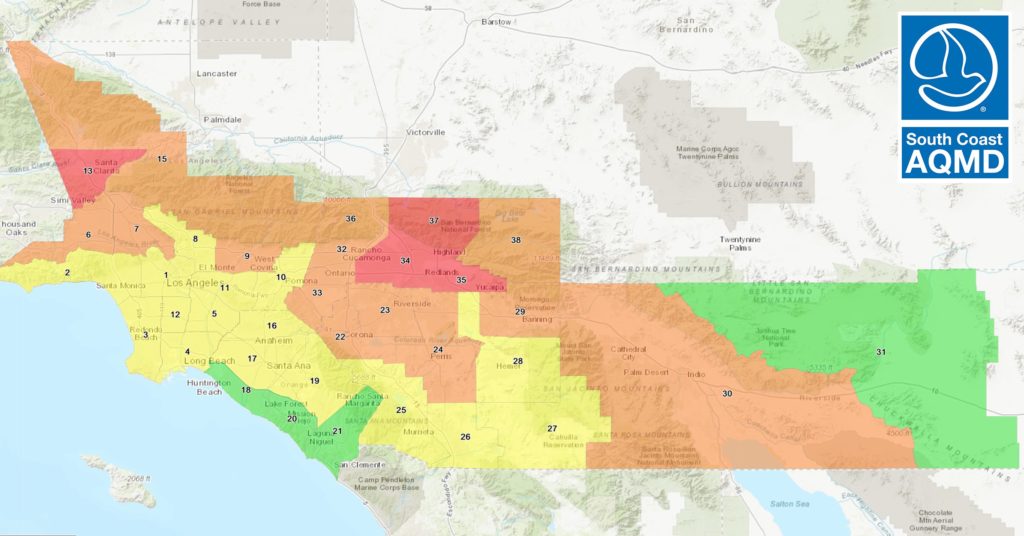
According to the South Coast Air Quality Management District, smoke from the Soledad Fire burning in the region has caused unhealthy air quality in the San Gabriel Mountains and Santa Clarita Valley.
“It is difficult to tell where smoke, ash or soot from a fire will go, or how winds will affect the level of these particles in the air, so we ask everyone to remember that smoke and ash can be harmful to health, even for people who are healthy,” said Muntu Davis, health officer for Los Angeles County. “If you can see smoke, soot, or ash, or you can smell smoke, pay attention to your immediate environment and take precautions to safeguard your health. These precautions are particularly important for children, older adults, and people with heart or lung diseases.”
These precautions include avoiding unnecessary outdoor exposure and limiting physical exertion (whether indoor or outdoor), such as exercise. Children and people who have air quality sensitive conditions, such as heart disease, asthma, and other chronic respiratory diseases, should follow these recommendations and stay indoors as much as possible even in areas where smoke, soot, or ash cannot be seen, or there is no smell of smoke. If your condition worsens, contact your health care provider immediately for medical advice or call 911.
Wildfire smoke is a mixture of small particles, gases, and water vapor. Small particles are the primary health concern. These small particles can cause burning eyes, runny nose, scratchy throat, headaches, and illness (i.e., bronchitis). In people have sensitive conditions, they can cause difficulty breathing, wheezing, coughing, fatigue, and chest pain.
“We are also advising day camps that are in session in smoke-impacted areas to suspend outside recreational activities, such as hiking or picnics, until conditions improve,” said Dr. Davis.
People can participate in indoor activities in areas with visible smoke, soot, or ash, provided the indoor location has air conditioning that does not draw air from the outside, and it has closed windows and doors to protect the cleanliness of indoor air. If not, it is recommended that everyone follow these guidelines as if they were outside.
The following recommendations will help you protect yourself and your family from the harmful effects of unhealthy or poor air quality:
- If you see or smell smoke or see a lot of particles and ash in the air, avoid unnecessary outdoor activity to limit your exposure to harmful air. This is especially important for those with heart or lung disease (including asthma), the elderly and children.
- If outdoor air is bad, try to keep indoor air as clean as possible by keeping windows and doors closed. Air conditioners that re-circulate air within the home can help filter out harmful particles.
- Avoid using air conditioning units that only draw in air from the outside or that do not have a re-circulating option. Residents should check the filters on their air conditioners and replace them regularly. Indoor air filtration devices with HEPA filters can further reduce the level of particles that circulate indoors.
- If it is too hot during the day to keep the doors or windows closed and you do not have an air conditioning unit that re-circulates indoor air, consider going to an air-conditioned public place, such as a library or shopping center, to stay cool and to protect yourself from harmful air.
- Do not use fireplaces (either wood burning or gas), candles, and vacuums. Use damp cloths to clean dusty indoor surfaces. Do not smoke.
- If you have symptoms of lung or heart disease that may be related to smoke exposure, including severe coughing, shortness of breath or difficulty breathing, wheezing, chest tightness or pain, palpitations, nausea or unusual fatigue or lightheadedness, contact your doctor immediately or go to an urgent care center. If life-threatening, contact 911.
- When smoke is heavy for a prolonged period of time, fine particles can build up indoors even though you may not be able to see them. Wearing a mask may prevent exposures to large particles. However, most masks do not prevent exposure to fine particles and toxic gases, which may be more dangerous to your health.
- Practice safe clean-up following a fire. Follow the ash clean-up and food safety instructions at: publichealth.lacounty.gov/media/docs/ReturningHomeAfterAFire.pdf.
The following is recommended for pets:
- Avoid leaving your pets outdoors, particularly at night. Pets should be brought into an indoor location, such as an enclosed garage or a house.
- If dogs or cats appear to be in respiratory distress, they should be taken to an animal hospital immediately. Symptoms of respiratory distress for dogs include panting or an inability to catch their breath. Symptoms for cats are less noticeable but may include panting or an inability to catch their breath.

